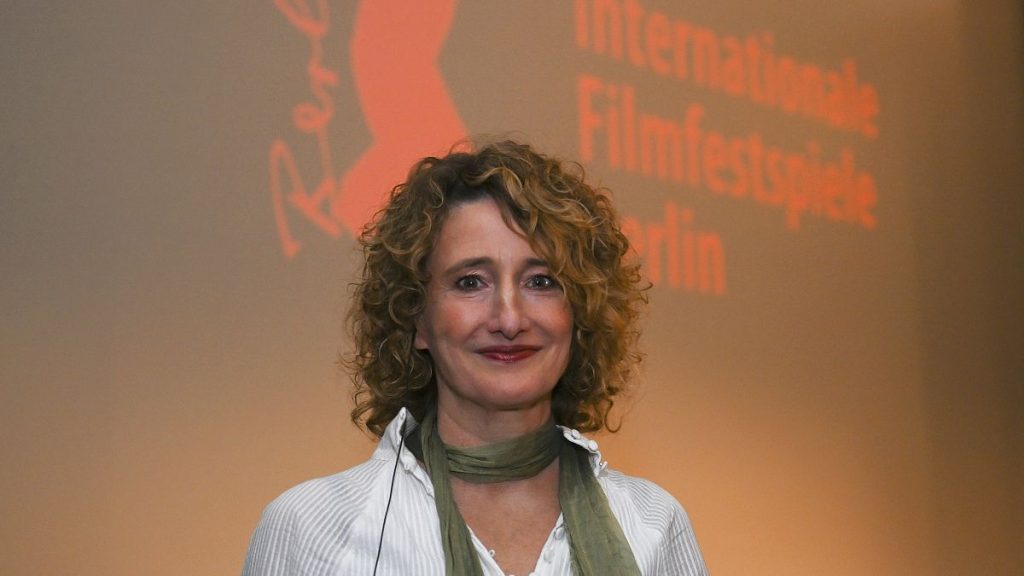The Berlin International Film Festival, or Berlinale, finds itself at the heart of a growing controversy concerning Germany’s stance on the Israeli-Palestinian conflict and its implications for artistic freedom. Tricia Tuttle, the newly appointed festival director, has voiced concerns about the chilling effect this political climate is having on the upcoming festival, scheduled for February 2025. Her apprehension stems from the perception among artists that Germany’s recent political moves, particularly a parliamentary resolution on protecting Jewish life, equate criticism of Israel with antisemitism, thus potentially stifling open dialogue and artistic expression.
Tuttle revealed that several filmmakers, though unnamed, have expressed reservations about participating in the festival, questioning the extent to which they can freely address the Israeli-Palestinian conflict without fear of reprisal or being misconstrued as antisemitic. This unease has prompted Tuttle and her team to embark on a campaign to reassure artists that the Berlinale remains committed to its long-standing principles of pluralism and open discourse, welcoming diverse perspectives on complex global issues. The festival aims to remain a platform where artists can express themselves without censorship, even on sensitive political topics.
The controversy surrounding Germany’s position on the conflict was further fueled by incidents at the previous year’s Berlinale awards ceremony. Several filmmakers used their acceptance speeches to express solidarity with Palestine and criticize the ongoing conflict. Mati Diop, winner of the Golden Bear, declared her support for Palestine. Ben Russell, an American filmmaker, wore a keffiyeh, a symbol of Palestinian solidarity. Eliza Hittman, another American filmmaker, called for a ceasefire in Gaza. These expressions of political opinion, though not uncommon at international film festivals, added to the growing anxiety surrounding the perceived limitations on free speech in Germany.
The most contentious moment, however, arose when Basel Adra and Yuval Abraham, a Palestinian-Israeli filmmaking duo who won an award for their documentary “No Other Land,” used their platform to criticize the Israeli government and its policies towards Palestinians. Adra condemned the violence in Gaza and called on Germany to stop supplying weapons to Israel. Abraham highlighted the stark inequalities between Israelis and Palestinians living under different legal systems. These speeches drew criticism from Berlin’s mayor, Kai Wegner, who accused the filmmakers of antisemitism and demanded that the Berlinale prevent similar incidents in the future.
Wegner’s accusations ignited further controversy and resulted in death threats against Abraham. The official Berlin city website, Berlin.de, even initially described “No Other Land” as exhibiting anti-Semitic tendencies, a claim later retracted with an apology. Tuttle publicly defended the filmmakers, emphasizing the danger created by labeling their work or their views as antisemitic. The incident underscored the sensitive and potentially volatile nature of discussions surrounding the Israeli-Palestinian conflict, particularly within the German context.
This confluence of events – the parliamentary resolution, the filmmakers’ speeches, and the subsequent backlash – has cast a long shadow over the upcoming Berlinale. Tuttle acknowledges the challenges posed by this politically charged atmosphere and the significant time spent addressing the resulting controversy. The festival now faces the delicate task of balancing its commitment to artistic freedom with the need to navigate the sensitivities surrounding the Israeli-Palestinian conflict in Germany. The 75th edition of the Berlinale, under the presidency of American director Todd Haynes, will undoubtedly be closely watched as it grapples with these complex issues.














